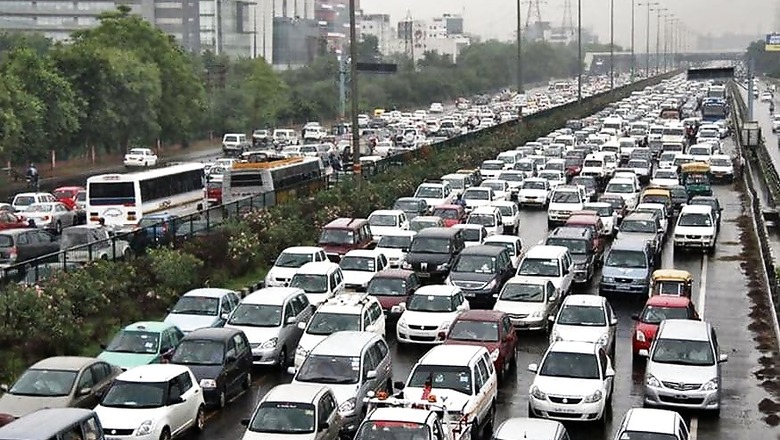
views
Traffic congestion, water and air pollution, and better employment opportunities have been the top three priority of Delhi's voters but the city government has performed below average in these issues, according to an ADR survey. The Association for Democratic Reforms (ADR) said that traffic congestion (49.67 per cent), water and air pollution (44.52 per cent), and better employment opportunities (43.07 per cent) are the top three priorities overall for Delhi voters.
"The performance of the government on all top three voters' priorities of traffic congestion (2.27 on a scale of 5), water and air pollution (2.29), and better employment opportunities (2.29) was rated as below average," the ADR said.
In urban Delhi, the topmost voters' priorities were traffic congestion (50 per cent), water and air pollution (45 per cent), and better employment opportunities (43 per cent), but the government's performance in these - at 2.27 on a scale of 5, 2.29, and 2.29, respectively - was rated as Below Average, it added.
In addition, the government has performed poorly in the empowerment of women and security (1.85) and noise pollution (2.27).
"For rural voters of Delhi, the topmost voters' priorities were higher price realization for farm products (56 per cent), better employment opportunities (52 per cent), and electricity for agriculture (44 per cent).
But here also, the government's performance - at 2.12 on a scale of 5, 2.17, and 2.25, respectively - was rated as Below Average, it added.
The ADR said that since Delhi's population is predominantly urban (97.5 per cent as per Census 2011), this report focuses primarily on urban voters' priorities.
The ADR commissioned perhaps the largest ever Voter Survey in any country. Conducted between October 2018 and December 2018, prior to the Lok Sabha polls 2019, it covered 534 Lok Sabha constituencies with 2,73,487 voters participating in this exercise spread among various demographics.
The three main objectives of this survey were to identify voters' priorities on specific governance issues; voters' ratings of the government's performance on those issues; and factors affecting voting behaviour.
















Comments
0 comment